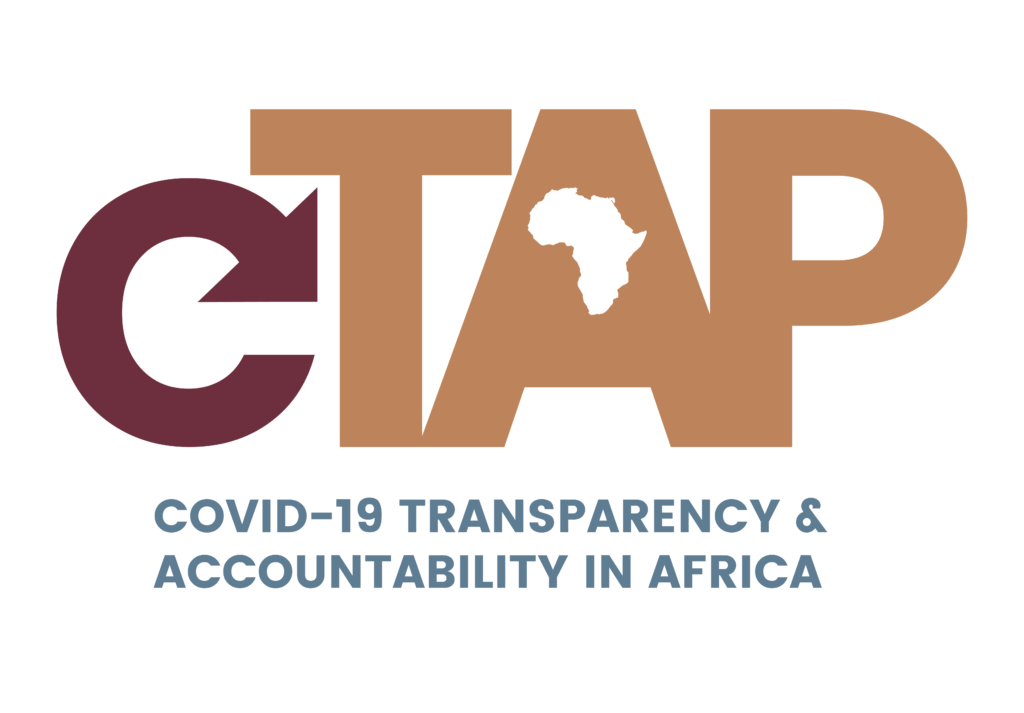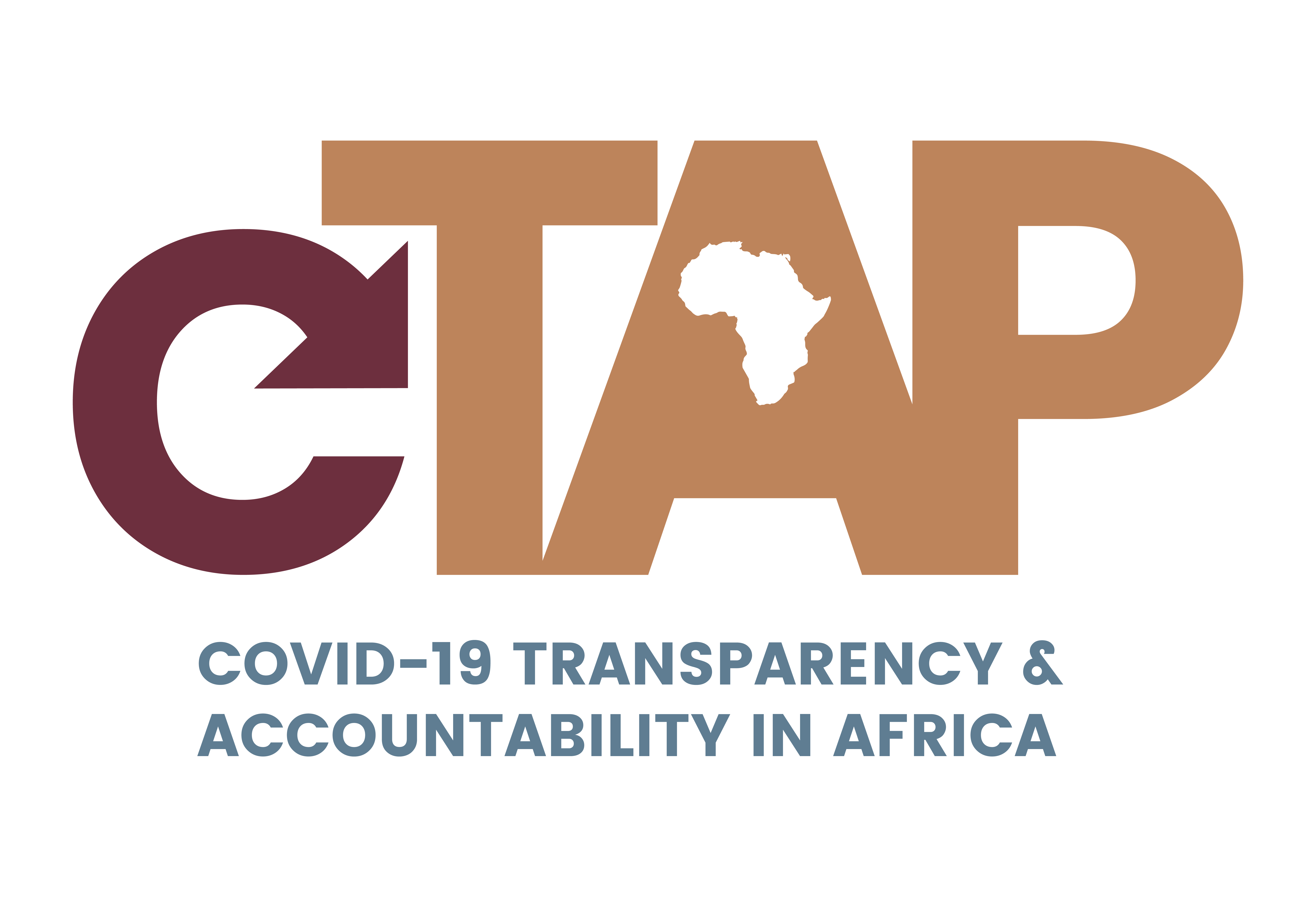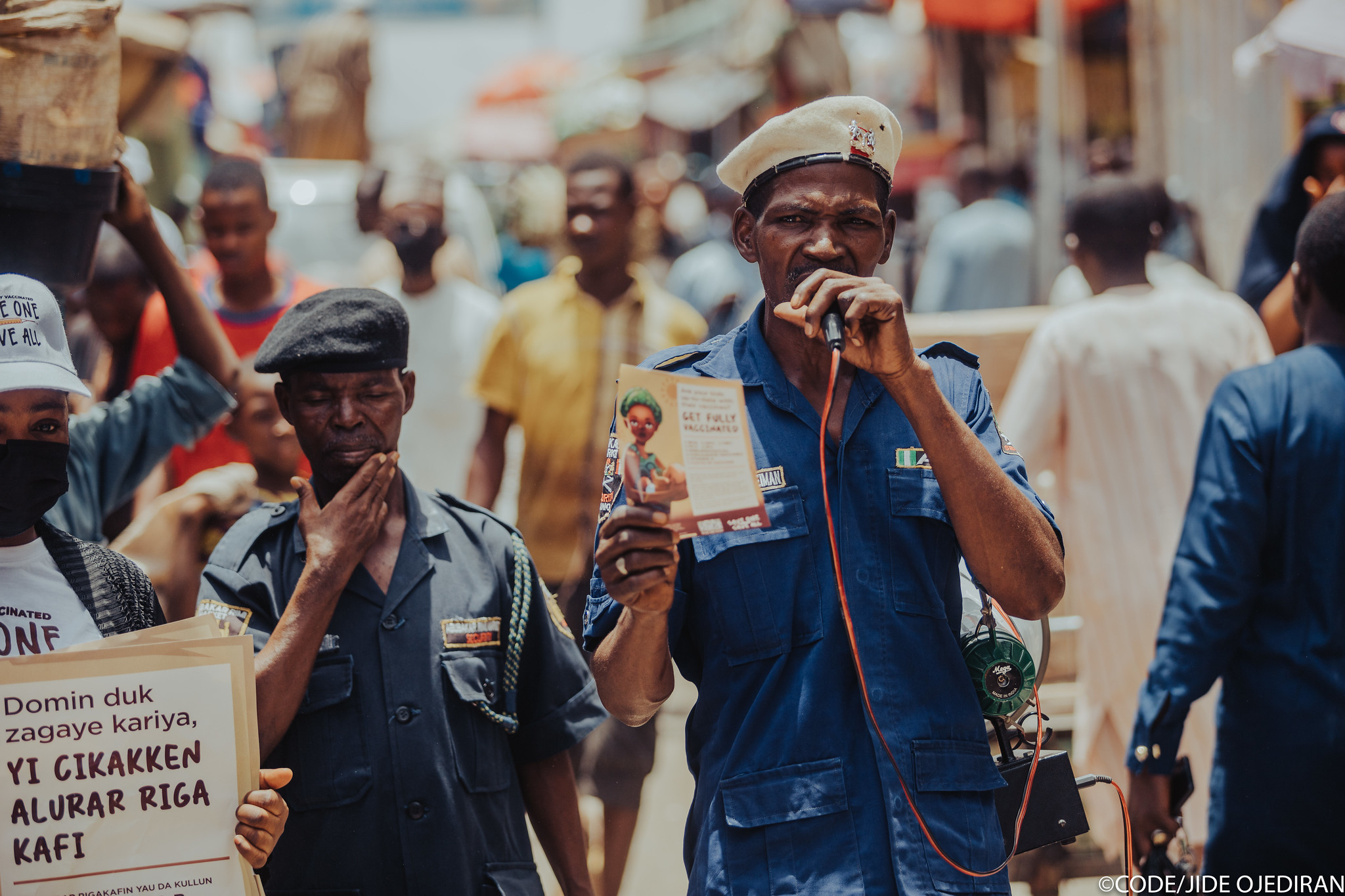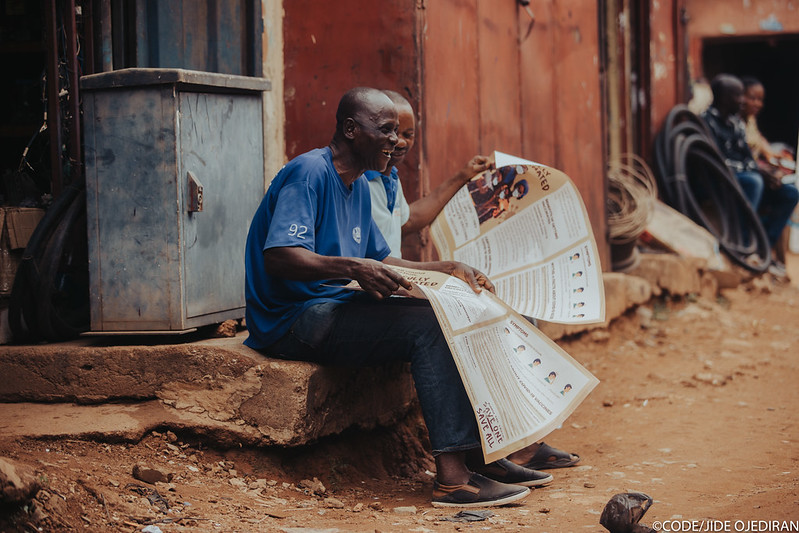The deplorable state of the healthcare system in Nigeria is no longer news, and the best way forward is to gather facts, stories, and data that can facilitate accurate service design and delivery in the sector. Without a needs assessment and dialogue through which meaningful data can be collected, planning for the healthcare sector in Nigeria will always be lopsided, wasteful, and unproductive.
To this end, the CTAP #SaveOneSaveAll project to ensure vaccine equity and set the agenda for healthcare in Nigeria started in March 2023 with the first phase of the campaign targeted at vaccine awareness and sensitization across the six geopolitical zones in Nigeria. We have shared how that movement went in our previous blog posts, which you can read here.
This time, with a new drive and agenda—as a new government ascends into the corridors of Nigeria’s leadership—the campaign took a new direction and a step further toward achieving better healthcare for the common people with the theme ‘Setting Agenda for Healthcare in Nigeria.’
Our visit this time started at the Northwest region where Sokoto State welcomed us with hard scourging sun amid lots of well-lined trees on its streets.
The People’s Voice Must Be Heard
Our first day was at the Usmanu Danfodiyo University Guest Inn, Sokoto. There, under the sub-theme, Community Town Hall Meeting in Northwest: Setting Agenda for Healthcare in Nigeria, we interacted with excited community members and representatives from the region which, interestingly, was a combination of all major Nigerian tribes and other minority tribes. It was a full town hall meeting that not only helped us spread the message of demanding accountability from leaders but also fed us with first-hand facts that would help our research team understand the needs of the people as it concerns their challenges with accessing good and affordable healthcare services, in the region and Nigeria as a whole.
Commencing the meeting, Iyanu Bolarinwa, BudgIT’s CTAP project lead, welcomed the attendees and afterward said, “In the past two years plus, we all witnessed the devastating effect of COVID-19. As an organization, we decided to understand the kind of funding Nigeria was getting towards the fight against COVID-19. We advanced in this goal in partnership with CODE—Connected Development. We made progress with the #SaveOneSaveAll campaign across the nation. But now that COVID has decreased to a manageable level, we saw another opportunity: to know how good our healthcare system is. This morning, I didn’t come here to talk. I came here to listen. We all came from Lagos to listen to you.”
He proceeded with the conversation, calling for volunteers to read the messages on the diverse rollup banners around the hall. Victoria Ibrahim, Madam Rabiu, and Agnes Thomas took turns reading them.
During the town hall meeting, we had a rather engrossing and eye-opening session like never before, and to say the least, “our people dey suffer ooo.” It can be argued that no suffering is new in Nigeria, seeing how much corruption and ineptitude have caused us, but some of these avoidable sour experiences cannot be anything less than maximum shege for the poorest of the poor who alone understand how peculiar their suffering is to them.
They Told Us Many Sad Health-related Stories
The attendees freely shared their experiences with us, many of which were overwhelming; some gave humor to situations that would rather be sorrowful. Let’s dig into three stories from the many that our host community shared.
Story One: I came to the hospital with a stomach ache and went home miraculously healed without anyone attending to me – Victoria, Student, Umaru Ali Shinkafi Polytechnic, Sokoto
“Good morning, everyone. I’m Osadare Victoria, a final year student of Umaru Ali Shinkafi Polytechnic, HND 2, Microbiology. I want to recount my experience at the Specialist Hospital in early 2021. Specialist Hospital is the general hospital in Sokoto, and we feel it’s the place we can easily access. But when I got there that day, I was having severe stomach pain, and we had been educated against self-medication. So on getting there, I met many people at the reception. Everywhere was disorganized, and I saw some people who were on admission lying on the benches—receiving drip—where we were supposed to sit to wait for the doctor.
I went to the nurses, who took my vital signs around 10 am. Thereafter, I sat down, waiting to be attended to since they told us they’d call us in order of our arrival. But soon, I noticed that someone would rush in and say, “Uzuriye.” Then they’ll take the person to the doctor. I don’t know what uzuriye is. All I knew was that once someone says it, they’ll take them to the doctor for treatment.
I was checking the time, and by past one in the afternoon, I was in severe pain but no one to attend to me. The routine continued, I’ll just hear uzuriye. The person would go to see the doctor and come out afterward while I was still waiting for my card to be called. I waited until past 3 pm. Still, I wasn’t called to see the doctor. Honestly, the pain just left because I was already frustrated and felt cheated.
I also began to think it was because I’m not an indigene. I saw a lot of nepotism and tribalism there, so I had to pick up my bag and leave. I didn’t see the doctor because of uzuriye, uzuriye, uzuriye. Another thing that caught my attention was that the place was dirty and unkempt. If anybody went to the Specialist Hospital at that time with a headache and they mistakenly stayed on admission, they would leave with chronic malaria. So we’re begging whosoever is in charge of health in Sokoto to look into that place. Some of us cannot afford UDUS and private hospitals. They should make it affordable and accessible to all. Thank you very much.”
Story Two: There were no healthcare workers to attend to me. The cleaner became the doctor! – Mrs Bright, Sokoto
“My name is Mrs Bright. I once had catarrh and was seriously vomiting, so I rushed to the hospital. On getting there, there was no doctor or nurse to attend to me, I had to wait. I waited and waited, but no one was coming to ask me, ‘Madam, what is wrong with you?’
I was tired and feeling so sick that I was even seeing my grandmother, who died about 15 years ago. It was so bad that I had to leave the hospital at some point and go to my house to use the toilet because theirs was too dirty. I returned to the hospital, yet no one attended to me.
After a long time, one of their cleaners came to me and wrote medications for me to buy. I asked how much my money was, and she said three thousand naira plus. And because I had no option, I had to listen to her. The cleaner became the doctor.”
Story Three: I paid for my drugs when I fractured my head, and my friend lost his sister to negligence, Nehemiah Akowe, Sokoto
“Good morning. My name is Nehemiah Akowe. A couple of months ago, a friend’s sister was hospitalized. She was critically ill, and while on admission, she needed blood. There was blood in their blood bank, but the personnel there were negligent and didn’t grant access, eventually leading to her death.
Another experience I had was around two years ago. I fractured my head and went to a primary healthcare center. Unfortunately for me, no personnel were there, and they were short of drugs. Even their equipment was brought outside before the consultant could attend to me. I had to get my drugs myself outside of that PHC. Human lives are at stake, so health personnel should know that their duty is to save souls and make life easier for their patients. But where the personnel are not well trained, it creates serious problems. Maybe there can be an orientation that should help them.”
Did you sigh at any point while reading those? Unfortunately, that is just a drop in the ocean of many ugly experiences Nigerians encounter when seeking basic healthcare. And we did not even include the story of the young lady who had a tooth problem but couldn’t let the doctor use the equipment she saw on her tooth and had to run for dear life. Or of the many whose midnight encounters in healthcare centers would make you pray never to fall sick at an ungodly hour and even compel you to pity healthcare personnel because ‘body no be firewood.’
Healthcare Challenges in Northwest Nigeria
From our conversation during the town hall meeting, the following are the predominant healthcare problems faced by citizens of the Northwest states.
- Limited healthcare facilities to care for patients who need medical attention
- An influx of patients without corresponding availability of doctors and healthcare workers to attend to them
- In the interior parts, there is the unavailability of health staff, and where available, many of them run home service as a source of income rather than work from the clinic
- Gross mismanagement of public health funds channeled into the pockets of unknown persons
- A social gap in access to medical education, and due to the high cost of education, people with low incomes cannot send their children to medical schools
- Diversion of PHC funds and provision of suboptimal equipment like benches where beds and modern equipment are needed
- Lack of needs assessment by the government and healthcare authorities to understand what communities need or lack before implementing healthcare projects
- High cost of basic treatment and health services, which many cannot afford
- Issues of favoritism, tribalism, and nepotism in many PHCs and medical facilities segregate patients along ethnic, professional status, and personal sentiments
- Overworked and underpaid healthcare workers, which leads to fatigue and their inability to dispense their duties as required
- Negligence of duty and disregard for human lives among healthcare workers
Agenda-setting Dialogue with Northwest Healthcare Leaders
Our work did not stop with the community engagement at the town hall meeting. On the second and final day of our campaign, we had an extensive agenda-setting dialogue with healthcare directors, executives, and policymakers from all states of the Northwest region—Jigawa, Kaduna, Kano, Katsina, Kebbi, Sokoto, and Zamfara.
The brainstorming event kicked off with a welcome address by BudgIT’s CTAP Lead, Iyanuoluwa Bolarinwa, who once again emphasized the need for a better healthcare system, policy, and tracking that will positively affect Nigerians’ lives.
He equally informed the attending healthcare leaders of the team’s initial meeting with the citizens the day before to hear the challenges they faced with healthcare services. The earlier town hall meeting, he said, was to assess the healthcare challenges and needs of the local community to inform the healthcare sector agenda in the new administration’s national and sub-national plan.
“There is no magic wind to fix the challenges we have in our country, most especially our health sector. Therefore, BudgIT believes that the only way to improve access to healthcare for the common people is by having a transparency and accountability structure in the healthcare sector,” he said.
In the course of the event’s discussion, the attendees unpacked diverse challenges mitigating the achievement of effective healthcare in Nigeria and proffered solutions that would become a communique to all state governments on the needs of the healthcare sector in the region.
Northwest Healthcare Leaders 10-point Agenda-setting Recommendation
Through a grouped session designed for idea exchange, the attendees mapped out a 10-point agenda-setting recommendation that the Northwest governments would need to implement for better healthcare systems in the Northwest states:
- Adopt the Abuja declaration of 15% annual budget allocation to healthcare funding
- Establish and strengthen the department of human resources in the healthcare sector to ensure equal distribution of staff, taking into cognizance gender, professional capacity, and rural and urban posting structure
- Create an affiliation between schools and colleges of health technologies and state universities to improve the training of mid-cader staff as is already practiced in Kaduna State
- Improve and harmonize the welfare and salaries of healthcare professionals across all tiers of government in healthcare service delivery—primary, secondary, and tertiary—and provide a conducive working environment, accommodation, security, equipment, and facilities
- Prioritize the employment, training, and retention of qualified staff to strengthen the health sector through needs assessment and by hiring qualified personnel without prejudice to political affiliations or influence
- Provide adequate budget allocation for health—by establishing a health trust fund and grants from donors, and timely release of funds allocation for the proper and effective management of health agencies—make budget processes accessible to the public and enable the transparency of procurement and audit processes through credible and open bidding
- Engage civil society organizations and the media on healthcare transparency and, accountability, budgetary implementation, such as the publication of quarterly expenditures to the proper channels
- Develop proper processes and mechanisms for the monitoring, evaluation, maintenance, and management of healthcare facilities and services
- Establish and strengthen service delivery departments in state and local government areas by fostering direct reporting to the CEOs of the MDAs and ensuring accountability and transparency units under Servicom
- Engage in the use of conventional and social media to track government activities and promote the advocacy of relevant agencies
Keeping Up with More CTAP Stories
The #SaveOneSaveAll Campaign Phase Two, ‘Setting Agenda for Health Care in Nigeria,’ in partnership with CODE and proudly supported by Skoll Foundation, will continue throughout the remaining regions of the country in the coming weeks. Watch out for more field notes from our amazing writers.



